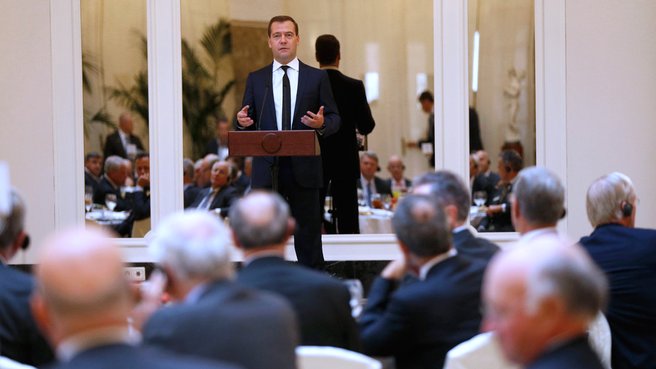Speaking at the meeting, the Russian Prime Minister expressed his opinion on the state of the Russian economy, focusing particularly on the financial sector.
“The Russian Government and the Bank of Russia have pursued a responsible policy in recent years. It has helped us retain a number of macroeconomic advantages, including a low debt load, reasonable rouble exchange rate and relatively predictable inflation,” Mr Medvedev said.
The Prime Minister also mentioned the creation of a unified financial market regulator established as part of the Russian Central Bank. The Russian Government is hoping that the consolidation of regulation, monitoring and supervision of non-banking organisations will provide greater stability to the Russian financial system, making it transparent and attractive for investment.
Mr Medvedev said that a number of legislative initiatives were being prepared related to the banking sector, which aim at regulating securitisation of financial assets, promoting non-cash transactions and improving deposit insurance.
The Russian Prime Minister said that Russia was prepared to implement the recommendations of the Basel Committee on Banking Supervision. In particular, the Bank of Russia plans to introduce new requirements for capital calculation by credit organisations and for the minimum capital sufficiency under Basel III, beginning 1 January 2014. Russia assumes that the transfer should be synchronised with the country's partners, notably the European Union and the United States, Dmitry Medvedev said.
* * *
The International Institute of Banking Studies was founded in 1951. It is organised as a club which brings together leaders of top European banks from over 40 countries. The members of the club meet twice a year in closed sessions to discuss urgent matters related to the development of the financial and banking sector, and the political and economic situation in Europe and the world.
IIEB is holding its session in Russia for the first time. By tradition, prime ministers and heads of central banks of host countries are given the floor at the club's sessions. This helps to form an unbiased view of the development policies and priorities in individual countries and has a positive influence on decision making in investment and financing.













